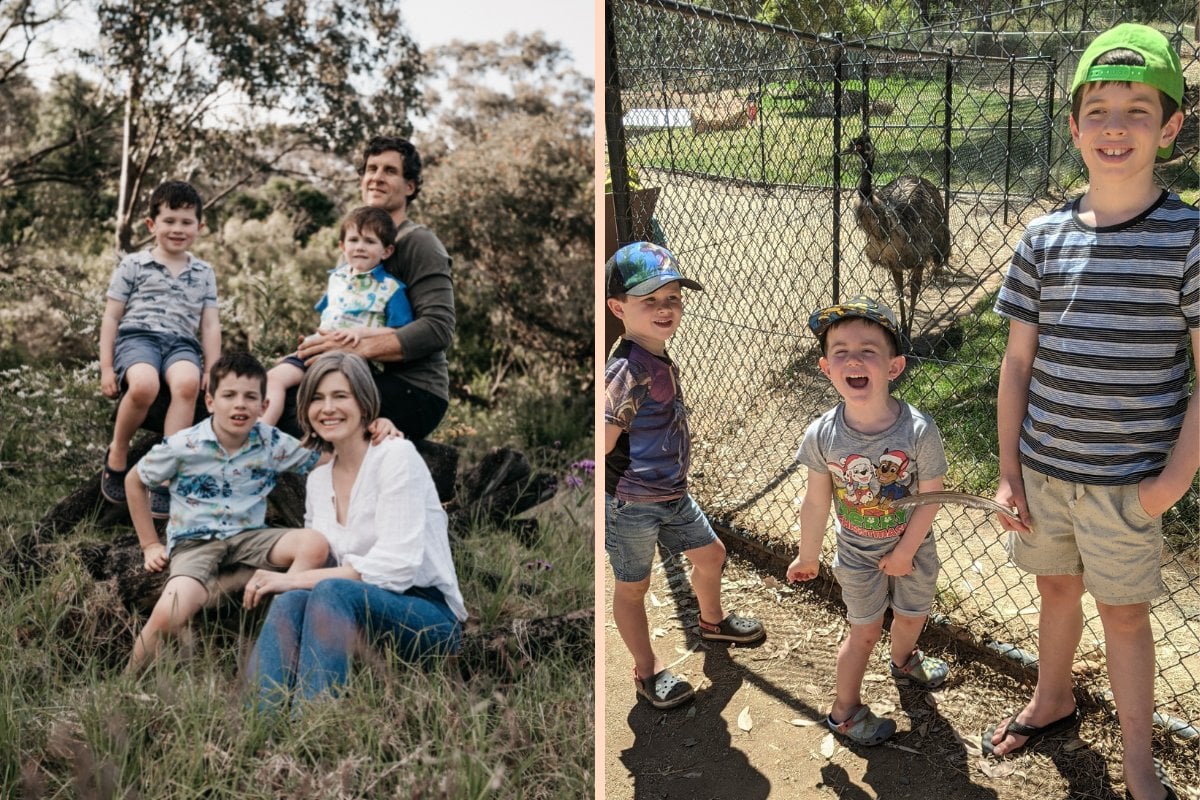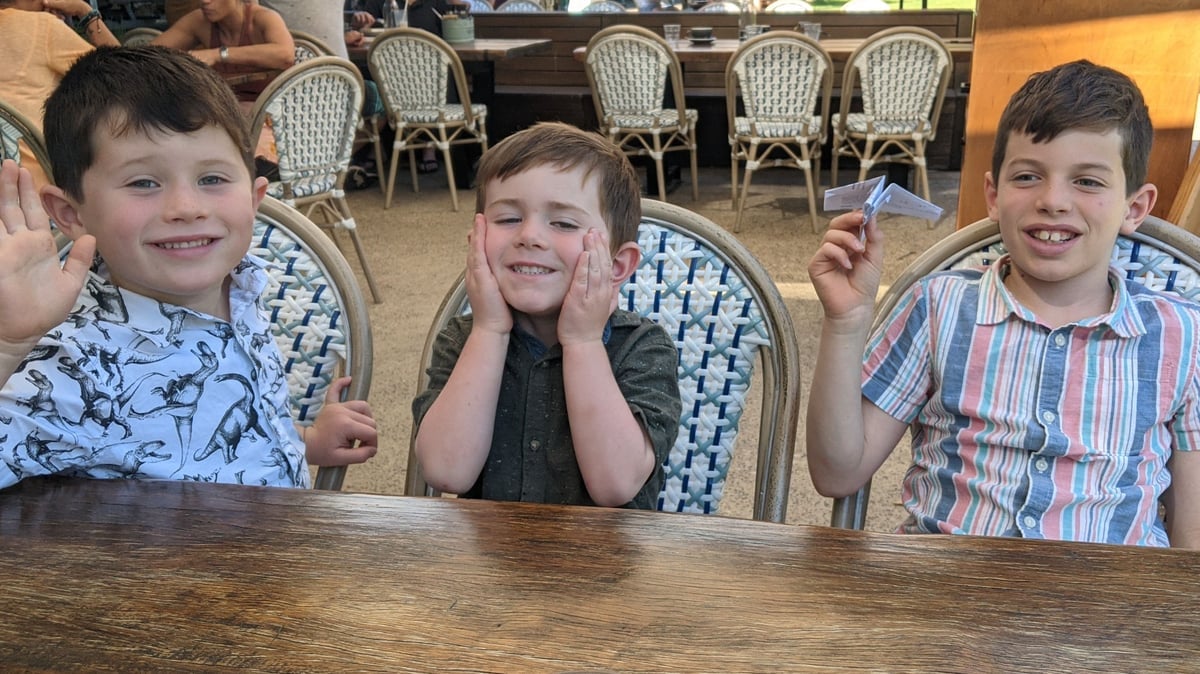
We all know words have power.
But since becoming a mum of three boys, too many times I’ve heard people say things to (and about) them that send the wrong message. Things that are hurtful, sexist, and downright destructive. And sadly, sometimes these words have come out of my own mouth.
Watch: Boys Do Cry, a mental health campaign for men, below. Post continues after video.
A few years ago, I read Breaking the Gender Code by Danielle Dobson, and it made clear how important the early years of childhood are in breaking down biases and gendered assumptions in our society.
But as a mum of boys, I’m sometimes guilty of thinking feminism and gender equality are more of a priority for the parents of girls. The parents who are empowering the women of tomorrow, and teaching their daughters that anything’s possible.
In reality, the way we speak to our boys plays a big part in balancing gender.
So here they are, seven things I need you to stop saying to my boys - and all boys:
1. Toughen up.
“Toughen up.”
“Stop crying about nothing.”



Top Comments